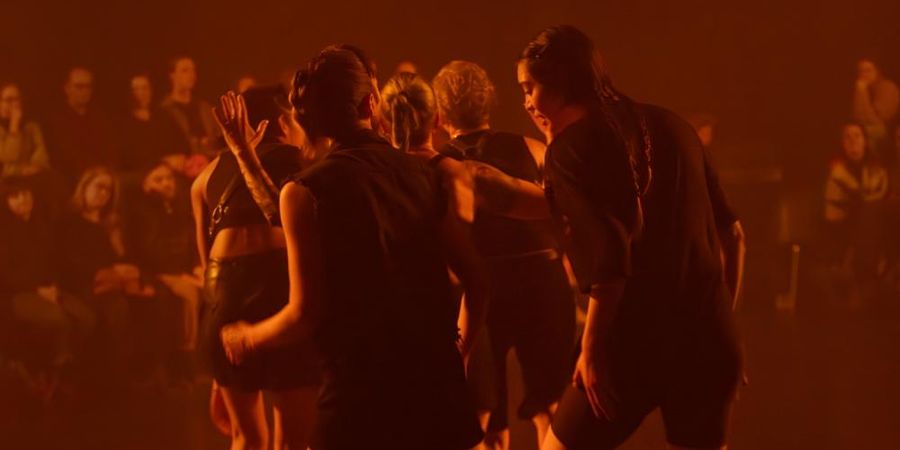The Sleeping Beauty
Anvers - Anvers

Sans nostalgie ni vision figée de l'avenir, elles proposent ensemble un techno-folk hybride qui perturbe tout contrôle et célèbre la physicalité collective.
When dancing hardcore, I don’t practice hardness. For me ‘going hardcore’ is going towards virtual touch, opening up the body to be moved intensely. It shows how machines—sound machines in this case—are able to make bodies feel more.³ Distorted bass pierces the gut and synths caress the upper skin layers through an interplay of technology and body, a posthuman kinship that is deliberately not productive. Hardcore heightens the ability to affect and be affected; it grinds the body soft. I propose that hardcore techno is therefore softcore, softcore dance, softcore choreography. My hardcore body is not hard and isolated, but sensual and in a constant affective encounter with every other body in space. - extrait de Some notes on Hardcore, une recherche à long terme de Lisa Vereertbrugghen sur le techno hardcore depuis 2013
• Lisa Vereertbrugghen (1986), basée à Bruxelles, est danseuse, chorégraphe et chercheuse. Depuis 2014, elle fait des recherches sur les styles de danse techno hardcore sous diverses formes : performances, conférences-performances, installations de performance et publications. Elle est titulaire d'un master en études culturelles de la KU Leuven et a étudié la chorégraphie à la School for New Dance Development à Amsterdam. Collaborant fréquemment avec Michael Langeder, Sophie Guisset, Vera Martins et Madison Bycroft, elle travaille également comme dramaturge, interprète et chorégraphe pour divers artistes de la scène et des arts visuels entre Bruxelles, Berlin et Amsterdam. Elle enseigne également à l'Académie royale des beaux-arts de Bruxelles. Ses performances les plus récentes sont Softcore, a hardcore encounter (2018), et DISQUIET - sensational aesthetics of a technokin (2021).
